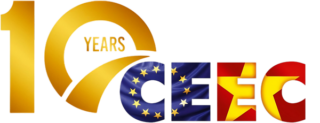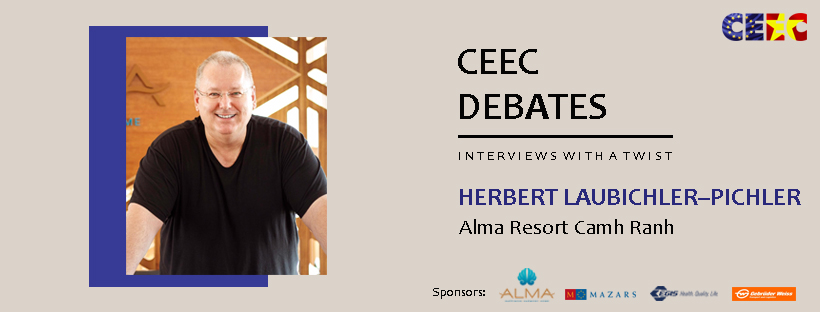“In the last 8-10 years, the concept of travel went through another major shift, evolving from ‘travel as an experience’, to ‘travel as a story’, because there is nothing more beautiful for a human being than telling a story. With social media, now everyone is a critic through TripAdvisor, everyone is a photographer through Instagram, and everyone is a storyteller, because there is Facebook. Everything is about storytelling and this is a critical, focal point for our industry as a whole. The role of hospitality is to enable you to share your own story, to discover more about yourself and to show you things that you didn’t even know existed.”
Vlad Savin: What do you think the role of the hospitality & tourism industry is now, and how did it change, if you look back 50 years ago when you started your adventure in this industry, working at your parents’ guesthouse in Austria?
Herbert Laubichler-Pichler: Hospitality, like everything in life has changed dramatically with the social media and with the internet. Thirty years ago, you went on holidays because you were tired, you wanted to have a rest, with a preset schedule of 2-3 weeks, and most of the time you went to the same place again and again, especially in Europe. It was an experience that didn’t you bring out of your comfort zone, instead focused on rest and relaxation. With travel becoming more accessible and cheaper, information moving across through internet and social media at such an incredible pace, the travel time became shorter, instead of 3 weeks a year holiday you would take 1-week holiday 3 times a year. This shift enabled the transformation of the holiday for rest into holiday for experience.
In the last 8-10 years, the concept of travel went through another major shift, evolving from travel as an experience, to travel as a story, because there is nothing more beautiful for a human being than telling a story. Under the social media influence, now everyone is a critic through Tripadvisor, everyone is a photographer through Instagram and everyone is a storyteller, because there is Facebook.
Everything is about storytelling and this is a critical, focal point for our industry as a whole. The role of hospitality is to enable you to share your own story, to discover more about yourself and to show you things that you didn’t even know existed.
Vlad Savin: How would you define Alma’s value add, in the context of your previous experience in managing international resorts across the world and considering the current status of the hospitality sector in Vietnam?
Herbert Laubichler-Pichler: There are three segments that reflect our value and authenticity.
One is related to ownership, you can own a piece of Alma if you like, you can buy 1 week for the next 34 years, and this in itself is a very interesting concept in two ways: first, investors can collect upfront a part of the investment and use it to better the resort; second, the client has a guaranteed price for the next 34 years, if he pays $100 for a room, in 34 years they will pay exactly the same, and the only thing that changes is the maintenance fee, with a marginal increment per year.
The second segment is the Free Independent Travellers (“FIT”), which can benefit from Alma’s significant capabilities and facilities, with the size advantage playing an important role. We are extremely large in area, we cover 30 ha. of land and the way we have built the resort was to offer comfort and space, with our smallest units having 70 sqm and the largest – the private-pool pavilions with up to 230 sqm. The resort layout is cascading from the sea upwards towards the lobby, offering not just private space for each unit, but this enables all units in Alma to have a perfect sea view.
We are a family resort, and our vision is to become the first choice for family vacations in Asia. Everything is built along the concept of family. We have 12 pools, kids club, science museum, youth club and many restaurants with a wide variety of cuisines and a diverse range of prices as well, where you can enjoy a dinner with 5$ and you also have a choice of 35$.
The third part I would like to highlight is the MICE, Wedding and group segment. Leveraging on our large areas, numerous pools and long beachfront, there is a huge opportunity for small and large groups to take advantage of our facilities. Specifically for this business model, we have created a 1500 sqm beachfront lawn that can be used for events located right at the beach, hosting up to 1500 guests. We also offer our Water Park to outside guest, allowing them to organize “Splash Parties”, a fun experience for companies who want to organize something new and special for their clients or their associates.
Vlad Savin: Can the Vietnamese hospitality industry survive by focusing only on the local travellers? How do you see the sector’s outlook if Vietnam cannot open its borders for international tourists fast enough?
Herbert Laubichler-Pichler: There is no way the industry can survive only with the local market. It will be extremely difficult by the end of the year. There are many hotels on sale already, countless hotels are closed, and numerous tour operators are in a critical situation. Salaries cut by half, occupancy level in most hotels in the city is 15% instead of 85% pre-Covid, overall the industry cannot survive, even if the airlines offer cheaper rates and with the government’s support, it will never work.
We at Alma are the lucky ones at the moment, I don’t know of any other resort in Vietnam that resembles our situation. When we opened after the lockdown, we had to hire 100 more staff; we didn’t have to fire more, we had to hire more, can you imagine that? And in June, July we had more than 60% occupancy, which is almost unheard of in Vietnam or the region. We are really the lucky ones and in the end, it’s all about the business model, our unique offering model is what really helped us in these tough times.
On the long run, the hospitality industry has deep obstacles which need to be addressed now so that we can overcome them in the future. We have to anticipate when and how the international market will open up, and prepare in advance for incoming guests. This is extremely hard to achieve when you don’t have enough staff and resources because you had to do layoffs or you closed your business, and there are no more experienced operators and travel agents to support these incoming tourists with quality services.
Vlad Savin: How do you think Covid-19 pandemic with transform the tourism sector and what will be the role of innovation in this process?
Herbert Laubichler-Pichler: Thinking ahead, I believe the future of hospitality will be focused on safety and social distancing as key attributes. I have a feeling that more and more guests (look at Airbnb for instance) will require units that offer a full comfort experience in a private/home-like model, with fully equipped private kitchens complementing the living space. Safety and cleanness procedures will be adopted by the hotels as a prerequisite, establishing internationally ISO certified protocols that offer the rising demand for security and safety from the travellers. In the future, hotels may become self-contained living hubs, and let’s take Alma as an example: we are almost self-contained already – we have Alma Mart, where people can buy a wide range of products, groceries which they can use to cook in their units, without the need to leave the premises. The travel experience may be governed by a safety first mentality, starting with the airport experience, where tourists are screened, checked and then applying the same procedures and principles to the hotels, which become a vacation destination and also a safety bubble. Under these presumptions, these self-contained hospitality hubs (i.e. resorts, hotels) have the potential to flourish and capture tourist demand, on the expense of connected businesses such as restaurants, which may find serios difficulties in retaining customers, when clients have everything they need in the resorts, without having to leave.
Technology wise, the industry will shift towards self-reliance: just as you self-check-in at the airport through digital machines, the same would apply for the hotels – automated self-check-in based on QR codes, mobile devices or other digital medias. Innovation will cut out the human interaction, which on the long term will have a negative impact on the entire travel experience, which is based on the concept of human interaction at the core.
Vlad Savin: How confident are you in the future of Vietnam on a scale of 1 to 10? And why?
Herbert Laubichler-Pichler: I would say 8. The way Covid-19 situation was handled is amazing, and the swift action and determination to stop the spread from its initial days was needed to mitigate further damages to the economy and security of the country. Looking at what is happening with China and US at the moment, Vietnam has become a safe heaven, not just for security and safe, but also from a business and investment perspective. Vietnam has created a fantastic image all over the world, and its growth model became an eye-opener for its dynamic economy and business opportunities.

